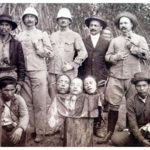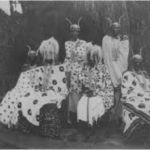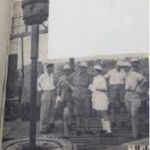Six. The crisis of the First World War
The Germans could not hope to hold back an Allied army of Belgians and British without the support of the Tutsi; that support was readily forthcoming. Musinga sent them two letters at the end of 1914 pledging his loyalty and…
Five. French Catholicism or German colonialism
The position of Rwanda's Vicar General in 1910 was more equivocal than he cared to admit. The sacrifice of Loupias' life had touched neither Tutsi nor Germans. The ungrateful mwami put out the eyes of an old friend of Save…
Four. Hutu Church And Tutsi Court
In der Person des Herrn Pater Classe einen geeigneten Leiter… haben,’ wrote Von Grawert complacently to Monsignor Hirth. His complacency was not shared by the missionaries, who resented Classe's eager support for the court, his apparent defection from the northern…
Three. Clientship In The South, Revolt In The North
The military might of the Kaiser in Rwanda amounted to two German officers and twenty-five askari in 1902. The telegraph from Dar- es- Salaam stretched only as far as Tabora, ten days' march to Bujumbura. This token force denied Rwanda…
Two. The Days Of The Askari- Catechist
The first great period of the Society of the Missionaries of Our Lady of Africa came to an end on 25 November 1892 with the death of Cardinal Charles Lavigerie. He had given the White Fathers a spiritual formation and…
One . Religion, king, clan and clientship in pre-colonial Rwanda
The first observers in Rwanda noted a division in society between the cattle-owning Tutsi, the farming Hutu, and the Twa, who either lived in the forests or worked as potters around homesteads. The three groups had distinctive physical characteristics, occupations,…
II. Mission and Society
The mission in Rwanda is discussed at three levels. Firstly as part of Rwandan society as a whole and therefore reflecting its structure and divisions. Secondly as a unit in its own right, a discrete institution with its own history,…
I. Teminology
loose use of the feudal model applied to African societies has come in for considerable criticism, and its use in this book requires some justification. The first major criticism came from E M. Chilver in Audrey Richards's East African ,…








